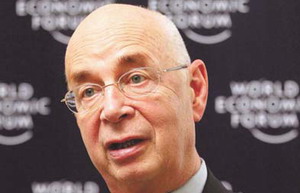Economy
Stimulus exit depends on Jan-Sept growth: researcher
(Xinhua)
Updated: 2010-09-15 15:07
 |
Large Medium Small |
TIANJIN - China will have to wait for the release of third-quarter growth data before deciding if to withdraw fiscal stimulus, a government think-tank researcher said.
Jia Kang, director of the Institute of Fiscal Science with the Ministry of Finance, made the remarks at the ongoing World Economic Forum's annual Summer Davos meeting in the northern Chinese port city of Tianjin.
When addressing the opening ceremony Monday evening, Premier Wen Jiabao said China's economy is now in good shape with the help of the 4 trillion yuan ($593 billion) stimulus package.
China's economy grew at an annual pace of 10.3 percent in the second quarter of this year due to clamp-down on property speculation and closures of highly-polluting plants, compared with 11.9 percent in the first quarter, official data showed.
Jia, however, suggested China should continue to issue local government bonds next year.
The central government issued 200 billion yuan of bonds for local governments in each of 2009 and 2010 to address the global financial crisis.
The bonds will help repay hidden debts of local governments to help better control debt risks, he said.
Economists were divided over the stimulus exit. Some said a hasty exit could bring slowdown risks, while others worried the stimulus, if lasting too long, could cause overheating and asset bubbles.
Long Yongtu, secretary-general of the G20 Research Center, said China's economy would no longer need further stimulus.
"The 4 trillion yuan stimulus package could ensure a double-digit growth and further more stimulus measures may lead to problems," Long said.




